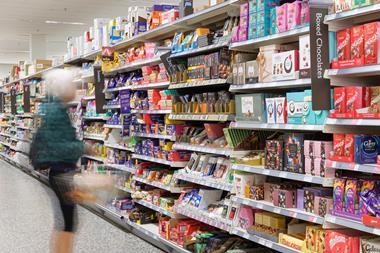
Have a think about how many food-related decisions you make every day. How many of these do you think are influenced by what you are seeing on social media?
We make over 200 decisions about the food we eat, consciously and unconsciously, every day. And every day we are bombarded with encouragement and opportunity to choose the less healthy options. This primarily comes from paid-for advertising, which we know can shape everyone’s food choices (including children), and not always in a healthy way.
According to the latest research by Cancer Research UK, nearly nine out of 10 teenagers have been exposed to unhealthy food ads on social media. As part of the study, the charity asked 3,400 11 to 19-year-olds from across the UK where they had seen ads that month for food and drink high in fat, sugar and salt. Eighty-six per cent said on social media. The number was higher than the proportion that had seen HFSS ads on TV, which stood at 84%. Meanwhile, 88% had seen special offers for unhealthy food, and 64% had seen ‘influencers’ promoting unhealthy food.
Evidence suggests that children’s exposure to products high in (saturated) fat, salt or sugar (HFSS) can affect what and when they eat. This can happen in the short term (ie increasing the amount of food children eat immediately after being exposed to an HFSS food advert), and also in the longer term by shaping children’s food preferences from a young age. Restrictions on HFSS advertising could therefore help reduce this unwarranted exposure and improve our children’s health and wellbeing.
Furthermore, it can encourage companies producing HFSS products to reformulate their recipes in order to make them healthier and enable them to continue advertising the product. If companies choose to do this, it could further increase the health benefits to both current and future generations.
Besides, most companies with a wide range of products can shift their marketing budget to healthier products and continue to advertise in a responsible way.
Children have the right to be healthy, no matter where they live. Unfortunately, this isn’t happening because those forced to live in poverty are more likely to be living with childhood and adult obesity, which is also an independent risk factor for more severe illness and death from Covid-19.
Studies also suggest that children from the most deprived households spend more time online than those from the most affluent families, and that HFSS adverts have a greater impact on this group. A reduction in HFSS advertising exposure would undoubtedly help ensure that all children have the same chance of a healthy future.
As part of its ‘tackling obesity strategy’ the government has committed to acting on protecting children from HFSS exposure on TV. Now it is going further and consulting on a proposal to introduce a total restriction for these adverts online.
Robust legislation to restrict unhealthy food marketing and promotions to protect the health of future generations is necessary for many reasons, but fundamentally it would:
- Futureproof the policy against changes in children’s media habits. Who knows exactly how we will consume media in 10 years’ time? If we have learned anything from this pandemic, it is that things can change, and drastically. Did you notice how many children were forced to sit in front of a screen to learn when schools had to close?
- Ensure more transparency about how data is collected and how they target individuals with specific, sometimes tailored, ads. When a child hides their real age to get an Instagram or Facebook account, who knows if they are exposed to age-appropriate content? No one, because close to no one knows.
Despite the breaches of any new rules being enforced by the Advertising Standards Authority, the government must now impose stronger statutory penalties such as civil sanctions, including the ability to issue fines if industry regulation failed, or advertisers flouted the law.
The food and drink industry is the largest manufacturing sector in the UK, worth more than £28bn to the economy and employing almost 500,000 people. Surely, it is its moral duty to finally put public health before profits.



















No comments yet